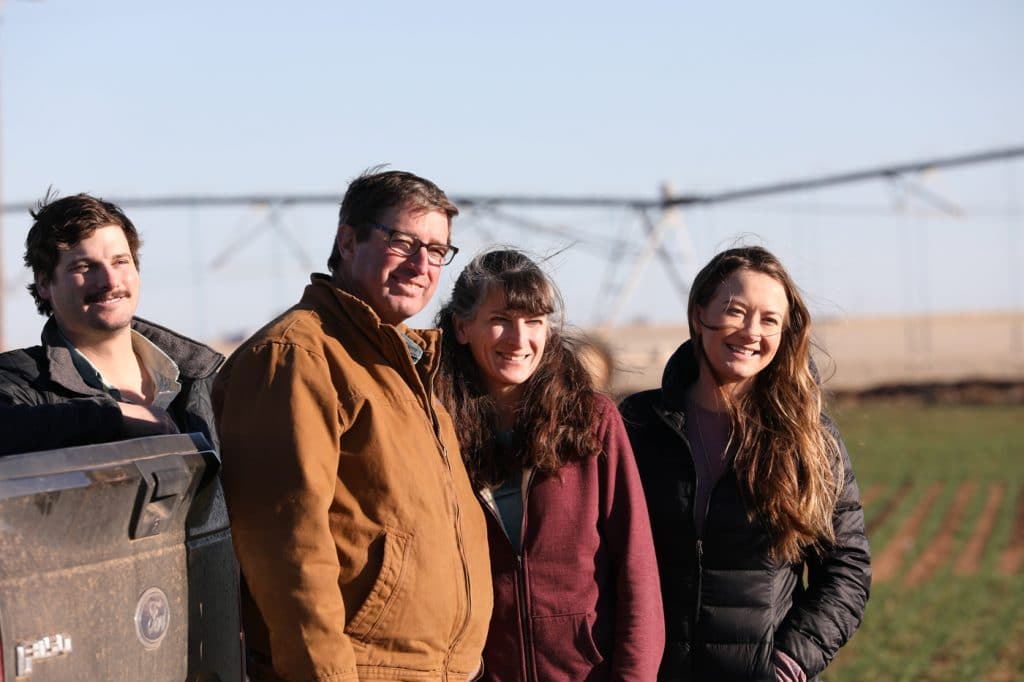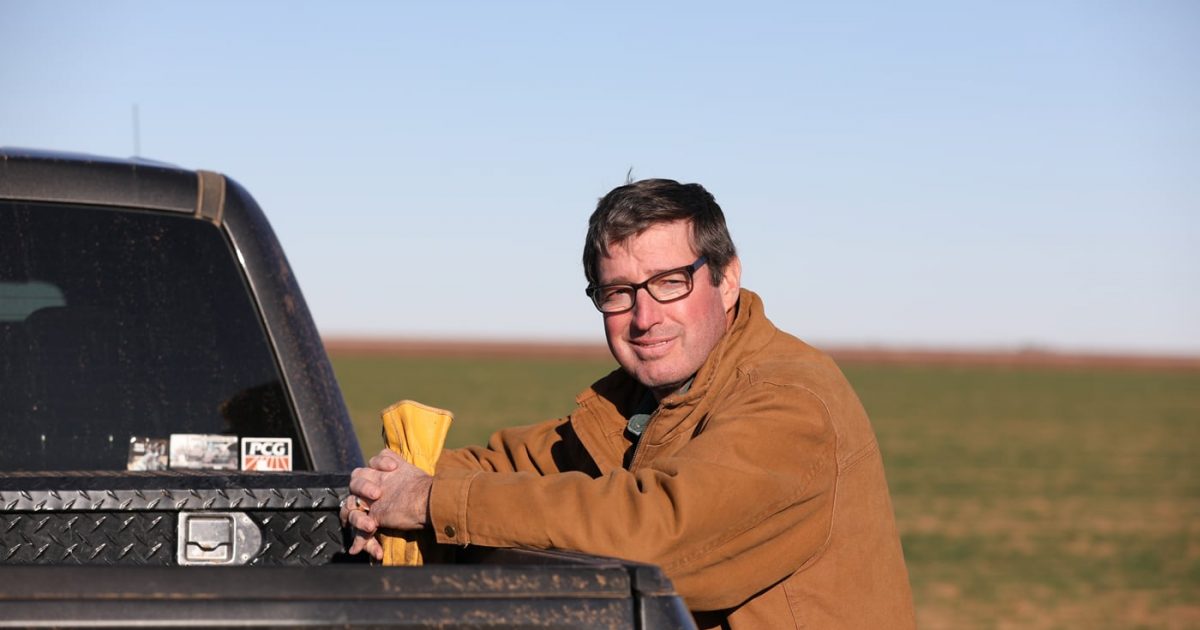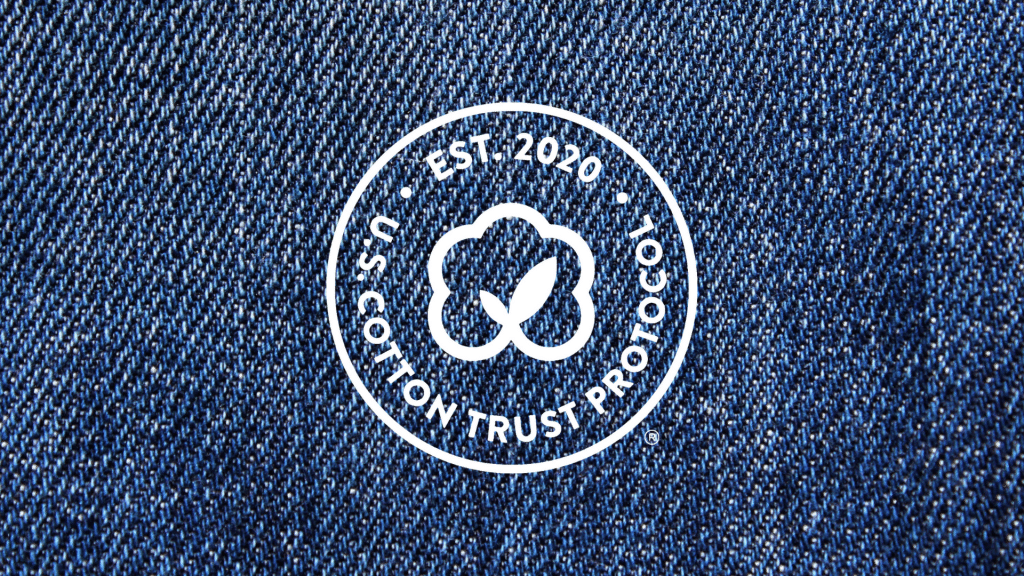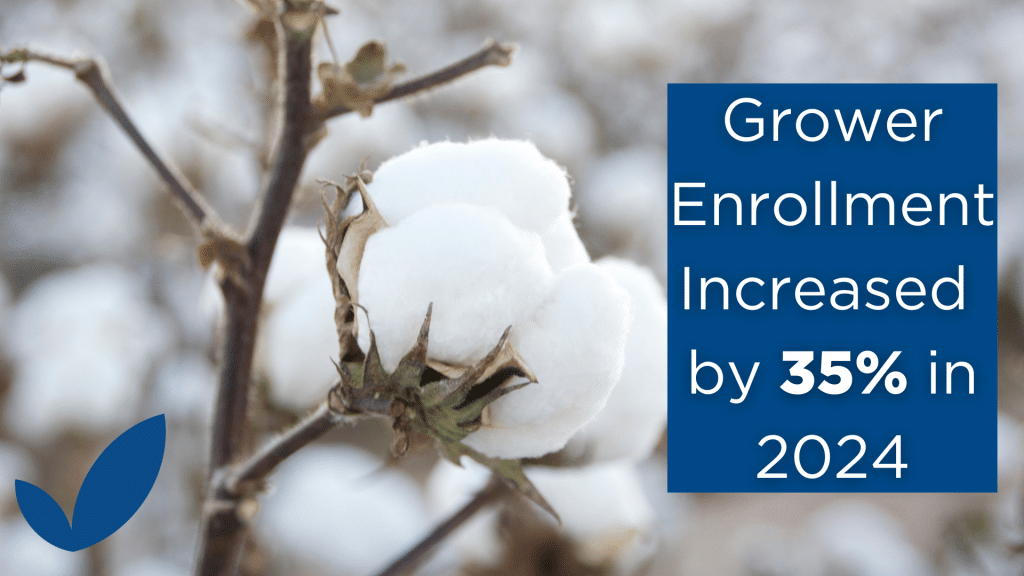Q: Please introduce yourself and tell us about your farm.
A: I’m Barry Evans, a U.S. Cotton Trust Protocol grower member from Kress, Texas, which is in the southern part of the Texas panhandle. I’ve been farming for 30 years and am the third generation to farm our land. This land has come through the dust bowl and has seen trying times, but we’re always working to make it better. Now I have a son and a new grandson who I hope will follow in my footsteps and really love this land.
On our farm we grow cotton and grain sorghum in rotation because they are both drought tolerant crops, meaning every year we change where each crop is planted on each acre. It is in fact a truth that cotton does not require much water—nor does grain sorghum. That’s why they work so well in rotation. Cotton has a long tap root that goes down deep, it’s just made for our arid Texas environment.
We no-till our crops because it helps capture rainfall. We’re on the Ogallala Aquifer, which is a natural groundwater storage reservoir and where we draw our water for irrigation. Only 15 percent of my land is irrigated. The technology we use for irrigation is called low energy precision application, which drops the water right between the furrows on top of the ground, allowing us to achieve 95 percent efficiency.
Q: What does sustainability mean to you?
A: Sustainability means leaving the land better than we found it. The land is what we love and how we make our living. We want to continue to improve the land so that future generations can farm this land forever.
Q: Why did you join the U.S. Cotton Trust Protocol?
A: I joined the Trust Protocol because the program provides us data to demonstrate how we sustainably grow cotton. The data means we can measure and improve our growing practices. With the data that we receive, I can look at the way I’m doing things, and I can compare to the aggregated data to other sustainable practices from growers within Texas and nationwide. The program provides a lot of encouragement to continue to improve.
Q: We’ve hit a very busy time of year for farmers: spring planting. When do you begin preparing and making decisions to plant?
A: Preparing for planting starts in December, after we finish harvest. The first thing we do is review seed variety test results and findings from Texas A&M AgriLife Extension Service. We don’t just pick out the seed variety with the top yield, we pick out the best variety for the environment where we grow. We also look at our weed spectrum to see what we might need to control because we are very cautious about our herbicide use. We don’t want to use any more than we need to because it’s not wise for the environment and it’s expensive. We look through this information all winter long to help get prepared for planting in late April.
Q: When it comes to selecting seed, what advancements have you seen that aid with sustainability and continuous improvement?
A: When I look at the developments within seed genetics and technology over the last 20 or 30 years, it has been an absolute game changer. When we talk about improvements we think about yield, but it’s more than that. It’s yield for our input like water, fertilizer, herbicides, —not just making more pounds of cotton, but do you make more pounds per inch of irrigation water used? Do you make more pounds for the nitrogen fertilizer? Do you make more pounds for the rainfall that we get? By evaluating these multiple factors, we’re working to be more efficient and ensuring we’re having a smaller environmental footprint while producing more.
Q: There are many factors that impact when you can plant and the success of your cotton crop, what do you need to take into account?
A: With our short growing season in west Texas, whenever it is time to plant, we plant. It takes 150 to 180 days to grow a cotton crop- so we plant by the date on the calendar more than we plant by soil temperature, like other U.S. cotton growers where the temperatures are colder.
Weather is certainly an important factor because it is so arid here and rainfall is everything, we want to get our cotton in and planted and hopefully get rain shortly after.
Q: The use of technology also plays an important role in farming. Can you share what you’ve implemented on your farm and how long you’ve utilized it?
A: Technology has greatly advanced during my farming career. We have seen many improvements, especially in the seeds we plant. Having genetically modified cotton seed is huge. Before we had GMO cotton seeds, the only way we could control weeds was with a plow. Every time you run a plow you remove moisture, you hurt your organic matter, and you hurt your bacteria in the soil.
Additionally, now with precision technologies if we do have to spray for pests or plant disease, our applications are precise, an exact science—something we didn’t have 20 or 30 years ago.
Q: Anything else you would like to share?
A: I want people to know that we care about our soil, and the Earth is its full sense, and take pride in what we do. I was fortunate for the opportunity to come back to the farm where I grew up and now, I don’t want to be anywhere else. I’m glad for the opportunity to take care of this land with the hope that my son and grandson can do the same.






